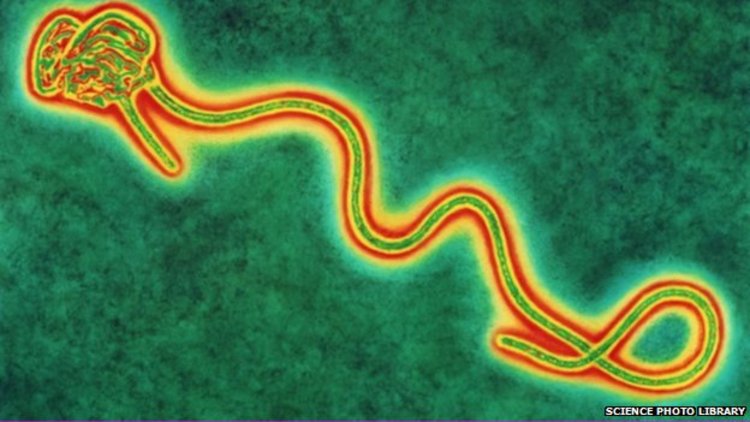
The Sunday Mail

I hope I find you in good health. Ebola virus disease (EVD) is a severe, often fatal illness.
It has caused severe panic, anguish and distress globally since its current outbreak in West Africa notified in March 2014.
It first appeared in 1976 in two simultaneous outbreaks, one in Nzara, Sudan, and the other in Yambuku, Democratic Republic of Congo.
The latter occurred in a village near the Ebola River, from which the disease takes its name. The current outbreak is the largest and most complex since the Ebola virus was first discovered in 1976.
There have been more cases and deaths in this outbreak than all others combined.
The natural reservoir host of Ebola viruses has not yet been identified.
However, researchers believe that the first patient becomes infected through contact with an infected animal. It is thought that fruit bats are natural Ebola virus hosts.
Ebola is spread through human-to-human transmission via direct contact (through broken skin or mucous membranes in, for example, the eyes, nose, or mouth) with blood or body fluids (including but not limited to urine, saliva, sweat, faeces, vomit, breast milk, and semen) of a person who is sick with Ebola, objects (like needles and syringes), and surfaces and materials (e.g. bedding, clothing) that have been contaminated with the virus.
Healthcare workers have frequently been infected while treating patients with suspected or confirmed EVD.
This has occurred through close contact with patients when infection control precautions are not strictly practised.
Burial ceremonies in which mourners have direct contact with the body of the deceased person can also play a role in the transmission of Ebola.
People remain infectious as long as their blood and body fluids, including semen and breast milk, contain the virus.
Once someone recovers from Ebola, they can no longer spread the virus. However, Ebola virus has been found in semen for up to three months.
Abstinence from sex (including oral sex) is recommended for at least three months. If abstinence is not possible, condoms may help prevent the spread of disease.
Ebola is not spread through the air or by water, or in general, by food. There is no evidence that mosquitoes or other insects can transmit Ebola virus.
During outbreaks of Ebola, the disease can spread quickly within healthcare settings. Exposure can occur where hospital staff are not wearing appropriate protective equipment, including masks, gowns, and gloves and eye protection.
Dedicated medical equipment should be used by healthcare personnel providing patient care.
Proper cleaning and disposal of instruments, such as needles and syringes, is also important. If instruments are not disposable, they must be sterilised before being used again. Without adequate sterilisation of the instruments, virus transmission can continue and amplify an outbreak.
The time interval from infection with the virus to onset of symptoms is two to 21 days. However, on average, symptoms appear in eight to 10 days.
Humans are not infectious until they develop symptoms. First symptoms are the sudden onset of fever, fatigue, muscle pain, severe headache and sore throat.
This is followed by vomiting, diarrhoea, rash, symptoms of impaired kidney and liver function and, in some cases, both internal and external bleeding (eg oozing from the gums, blood in the stools). Laboratory findings include low white blood cell and platelet counts and elevated liver enzymes.
Diagnosing Ebola in a person who has been infected for only a few days is difficult because the early symptoms such as fever, are non-specific to Ebola infection and are seen often in patients with more commonly occurring diseases such as malaria and typhoid fever.
If a person has the early symptoms of Ebola and has had contact with the blood or body fluids of a person sick with Ebola, contact with objects that have been contaminated with the blood or body fluids of a person sick with Ebola, or contact with infected animals, they should be isolated and public health professionals notified.
Samples from the patient can then be collected and tested to confirm infection.
There is as yet no proven treatment or vaccine available for EVD. However, a range of potential treatments including blood products, immune therapies and drug therapies are currently being evaluated.
Supportive care-rehydration with oral or intravenous fluids and treatment of specific symptoms, improves survival.
Recovery from Ebola depends on good supportive care and the patient’s immune response. People who recover from Ebola infection develop antibodies that last for at least 10 years, possibly longer.
Some people who have recovered from Ebola have developed long-term complications such as joint and vision problems.
Good outbreak control relies on applying a package of interventions, namely case management, surveillance and contact tracing, a good laboratory service, safe burials and social mobilisation.
Community engagement is key to successfully controlling outbreaks.
Raising awareness of risk factors for Ebola infection and protective measures that individuals can take is an effective way to reduce human transmission.
Outbreak containment measures include prompt and safe burial of the dead, identifying people who may have been in contact with someone infected with Ebola, monitoring the health of contacts for 21 days, the importance of separating the healthy from the sick to prevent further spread, the importance of good hygiene and maintaining a clean environment.
Healthcare workers should always take standard precautions when caring for patients, regardless of their presumed diagnosis. Samples taken from humans and animals for investigation of Ebola infection should be handled by trained staff and processed in suitably equipped laboratories.
Let’s all take precautions against Ebola.
We have already lost a few battles in West Africa, but we will win this war.
Till next time, take care of yourself and each other and remember . . . wisdom is the principle thing and in all your getting get understanding. Proverbs 4 verse 7.
Dr Paul Chimedza is the Deputy Minister of Health and Child Care. You can reach him on [email protected]




